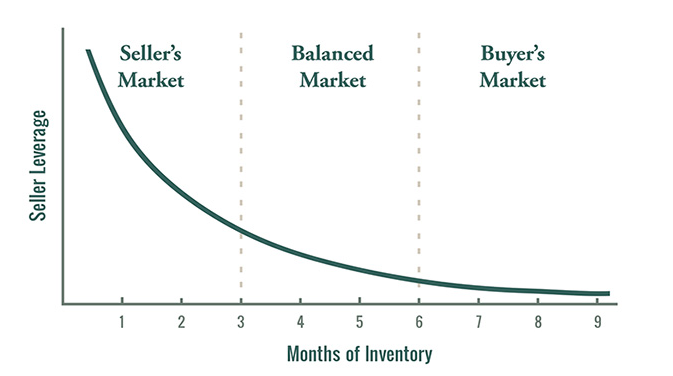How to Buy a House in a Seller’s Market: 8 Expert Tips for Real Estate Agents
Are you a real estate agent or a potential buyer navigating the complex waters of a seller’s market? If so, you understand that the stakes are high, and every advantage you can gain is essential. In this blog post, we will explore effective strategies and “how to buy a house in a seller’s market tips for real estate agents” to help you succeed in a seller’s market, from understanding the market dynamics to building emotional connections with sellers. Let’s dive in!
Key Takeaways
Real estate agents must possess strong negotiation, communication, and adaptation skills to succeed in a seller’s market.
Mortgage preapproval is important for potential buyers. Offering above the asking price and being prepared for low appraisals are key strategies to craft compelling offers.
Patience and persistence are essential for buyers. Real estate agents should build emotional connections with sellers while adhering to fair housing laws.
Understanding the Seller’s Market

A seller’s market is characterized by limited inventory and increased demand, resulting in competitive bidding and higher home prices. In contrast to a buyer’s market, potential buyers in a seller’s market face numerous challenges, including limited room for negotiation on price and contingencies, and the need to be prepared to accept properties as-is, often at or above the listing price.
Given the large number of interested buyers and a limited supply of homes during the home buying season, both real estate agents and buyers need to recognize a seller’s market and adjust their strategies accordingly in the housing market.
Identifying a Seller’s Market

In a seller’s market, certain key indicators can help you determine whether you’re dealing with high demand and limited supply. These indicators include low inventory, bidding wars, and homes selling for more than the asking price.
Bidding wars are often the result of factors such as high demand from buyers, limited supply of homes for sale, buyer constraints, and a sense of competition among buyers. Real estate agents often suggest that buyers search for homes below their spending limit in order to have the ability to bid up without exceeding their target price point in a seller’s market.
Essential Skills for Real Estate Agents in a Seller’s Market

Thriving in a seller’s market requires real estate agents to hone vital skills like robust negotiation tactics, effective communication, and adaptability. These skills enable agents to guide their clients through the challenging market conditions and ensure that they are able to act quickly and effectively when opportunities arise.
Strong Negotiation Tactics
Real estate agents need to utilize effective negotiation tactics in a seller’s market to clinch the best deals for their clients. Some of these tactics include:
Making aggressive offers
Offering non-price incentives
Refraining from counteroffers
Using the escalation clause, where a buyer offers a percentage increment above the highest bid received, potentially increasing the sales price in a seller’s market.
Non-price incentives can also be an effective tool in negotiations. These may include:
Lease flexibility
Property improvement
Providing appliances or other extras
Making concessions to foster goodwill and reciprocity
A great real estate agent should abstain from counteroffers when negotiating in a seller’s market to increase the chances of securing a deal for their clients, and that’s what makes them the right real estate agent.
Effective Communication
Clear communication plays a pivotal role in a seller’s market by enabling real estate agents to:
Understand their clients’ needs and preferences
Underline the significance of the market conditions
Demonstrate the urgency of a seller’s market by scheduling a listing appointment with potential sellers
Understand the seller’s motivation
Set a deadline for offers
Express appreciation for the business
Respond promptly to communication.
Adaptability and Flexibility
In a seller’s market, real estate agents benefit from adaptability and flexibility, as they facilitate quick adjustments to strategies and tactics in response to fluctuating market conditions. Being able to adapt and be flexible allows agents to effectively handle any challenges and take advantage of opportunities that may arise in a dynamic market environment.
Many real estate agents can enhance their adaptability and flexibility by embracing change and innovation, being open to new ideas, and cultivating resilience to conquer obstacles. They should also strive to be resourceful and stay abreast of the ever-evolving real estate industry.
Some strategies real estate agents can utilize to adjust to a seller’s market include:
Virtual staging
Abstaining from displaying houses at the top of the budget
Using email marketing campaigns
Interpreting local market data and trends
Acting promptly to make clean offers
Importance of Mortgage Preapproval

Mortgage preapproval is an analysis of a buyer’s finances and credit check that provides a more accurate estimate of the loan amount they can receive. Preapproval comes in handy in a seller’s market as it speeds up the process and enhances chances of acquiring the desired property. Having a down payment ready is also highly advantageous in a seller’s market, as it expedites the purchasing process and increases the likelihood of securing the desired property.
It’s recommended for buyers to complete full underwriting if a mortgage is needed. Obtaining preapproval for a home loan before searching in a seller’s market enables buyers to make an offer promptly, giving them an edge over other potential buyers who may not have their finances in order.
Crafting Compelling Offers

Crafting compelling offers becomes a key factor for standing out in a competitive seller’s market, especially when dealing with multiple offers. Some strategies for making competitive offers include offering above the asking price, demonstrating cash availability, and being prepared for low appraisals. Submitting an optimal offer initially is essential to avoid competitive interest and potentially secure the property of interest.
Having a financial cushion for a low appraisal is critical in a seller’s market, as high home prices can lead to appraisals that don’t increase at the same rate, thus resulting in lenders not funding the loan. By providing a higher than usual earnest money deposit, buyers can demonstrate their commitment to the transaction in a seller’s market.
Utilizing Technology for Virtual Home Tours

In a seller’s market, virtual home tours offer buyers enhanced health safety, time-saving benefits, and a more detailed property view, making them a valuable tool. Real estate agents can conduct these virtual tours using various technologies and platforms, such as:
360-degree cameras
Virtual reality headsets
Video conferencing software
Real estate websites and apps
These tools allow agents to showcase properties to potential buyers remotely, providing a convenient and immersive experience.
Before participating in a virtual home tour, buyers should ensure they have downloaded the necessary app, their device is charged, they have a reliable internet connection, and they are in a quiet environment where they can clearly hear the real estate agent. During the virtual home tour, which is a form of home shopping, buyers may request the agent to zoom in on certain areas, open closet doors, and provide a description of specific features.
Expanding the Search Area

Broadening the search area may enhance chances of finding a suitable property in a seller’s market, even if it involves considering neighborhoods that offer similar features at lower costs. By broadening their search, buyers can increase their chances of finding a suitable property, even if it entails considering neighborhoods with comparable features but more economical prices.
To remain patient in a seller’s market, buyers can implement several strategies, such as:
Responding promptly and maintaining open communication with their real estate agent
Establishing clear expectations for their housing and financial situation
Educating themselves about the local real estate market
It’s crucial for potential purchasers to be aware that they may not be the primary option and remain open-minded and not become overly attached to any single property.
Patience and Persistence in a Seller’s Market
In a seller’s market, both real estate agents and buyers need patience and persistence, given that deals might not always materialize and finding the perfect home could take longer than expected. By remaining patient and persistent, buyers can navigate the challenges of a seller’s market and ultimately find the perfect property.
Some strategies for maintaining patience and persistence in a seller’s market include:
Responding promptly and maintaining open communication with their real estate agent
Establishing clear expectations for their housing and financial situation
Educating themselves about the local real estate market
Acting quickly when they discover a property of interest
Persevering and abstaining from overpaying for a property.
Building Emotional Connections with Sellers

Establishing emotional connections with sellers could give buyers a competitive edge in the market. However, real estate agents should exercise caution when employing love letters due to potential fair housing implications as advised by the National Association. Forming emotional bonds with sellers in a seller’s market could lead to unintended consequences.
Real estate agents can create emotional connections with sellers in a seller’s market while complying with fair housing laws by:
Educating clients about fair housing laws and the potential issues with buyer love letters
Refraining from using buyer love letters as they may violate fair housing laws
Explaining to sellers how they can envision themselves living in the home
Being aware of the potential discriminatory impact of words and actions
Summary
In conclusion, navigating a seller’s market can be challenging for both real estate agents and buyers. By understanding the market dynamics, honing essential skills, obtaining mortgage preapproval, crafting compelling offers, utilizing technology, expanding the search area, and building emotional connections with sellers, you can increase your chances of success in this competitive market. Stay patient, persistent, and adaptable, and you’ll be well on your way to finding the perfect property in a seller’s market.
Also see our blog on understanding the phases of the real estate cycle: https://www.quickcommissionadvance.com/blog/understanding-the-4-phases-of-the-real-estate-cycle-in-2023/
Frequently Asked Questions

How do you become a successful seller market buyer?
To become a successful buyer in a seller’s market, have your finances in order, be vigilant, make your best offer quickly and be prepared to try again.
How do you negotiate house price in seller’s market?
To negotiate in a seller’s market, make an offer with limited contingencies, don’t expect too much discount, and consider making several offers.
How do I convince a seller to accept my offer?
Be sure to offer a fair price, provide pre-qualification documentation, offer more earnest money, waive contingencies, include an escalation clause, limit requests for extras, and be agreeable to the seller’s needs. By showing politeness and understanding of their needs, you can convince the seller to accept your offer.
What is a seller’s market?
A seller’s market is a situation with limited inventory and increased demand, leading to competitive bidding and higher home prices.
What skills are essential for real estate agents in a seller’s market?
Real estate agents in a seller’s market must be adept negotiators, possess strong communication skills, and have the ability to quickly adjust their approach.







